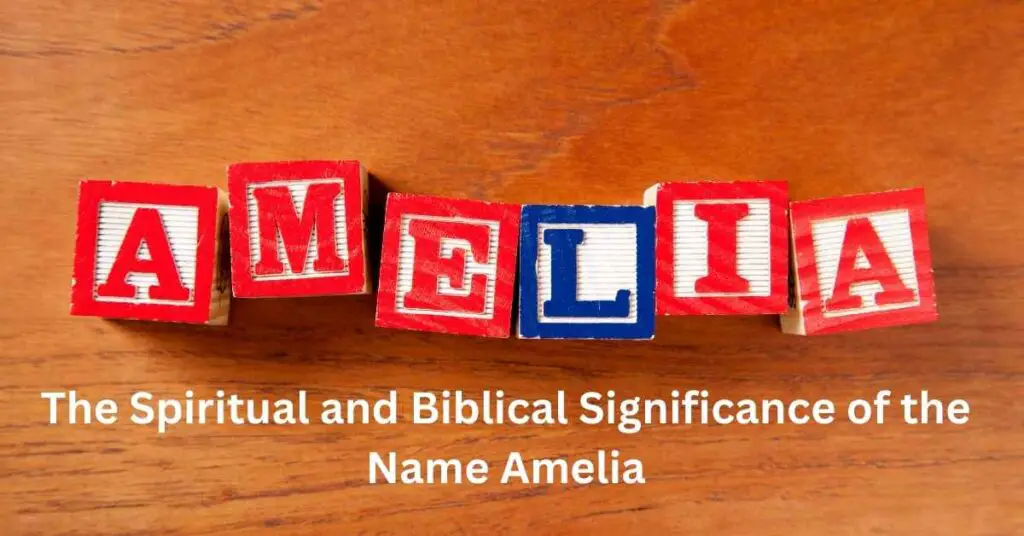The name Emily originates from the Latin name “Aemilia,” which is derived from the Roman family name “Aemilius.” It carries the meaning of “rival” or “eager,” reflecting traits of determination and ambition.
Emily has been a popular name across generations, ranking among the top choices in the United States for many years. Its timeless appeal lies in its simplicity, elegance, and versatility, making it a favorite among parents.
What Does the Name Emily Mean? The name has been associated with influential figures, such as the poet Emily Dickinson, further enhancing its cultural significance. Whether you’re exploring its history or choosing it for your child, Emily remains a name rich in meaning and tradition.
Emily: Unveiling the Name’s Meaning

The name Emily has deep historical roots and beautiful meanings behind it. Especially one that traces all the way to its Latin roots, including the word “aemulus.” As such, this Latin root word can be understood as “imitating” and “rivaling,” indicative of an enterprising and competitive nature.
Miriam’s name, Emily, is, indeed, the feminine form of Aemilius, an ancient Roman family name, highlighting just how far back the name goes. This connection to ancient Roman culture is an example of a powerful legacy of resilience and determination, which remain at the heart of the name’s identity even today.
Emily’s Core Meaning and Origin
Any way you spin it, the name Emily represents competition and replication, encapsulating a powerful pursuit of expansion and enhancement. In transformational Roman society, names like Aemilius were meaningful, embodying characteristics like ambition and powerful leadership.
With the years, centuries, and millennia—if we include the mythological etymological Emily—passing by, Emily has changed in language and culture. Its deeper meaning—embodying the strongest of sorts—persists. Knowing this origin provides a meaningful context for the nature of names in creating cultural identity and personal legacy.
Etymological Roots of Emily
Emily’s trip from “aemulus” to her contemporary form is a beautiful reminder of the fluid and robust development of language. This evolution across Latin, Old French, and English, with variants such as Emilia and Amelie deepening its history, has infused this name with beauty, vibrancy, and creativity.
The root, “aemulus,” focuses on ambition and perseverance, qualities that are universally admired. Tracking these cultural evolutions helps us understand Emily’s powerful continued relevance, connecting even older, original contexts to modern ones.
Emily’s Historical Journey and Popularity

The name Emily has a long historical journey, tracing its way through time and society. A descendant of the Latin aemulus, “industrious,” Emily has a history of being linked with industriousness, steadfastness, and passion. As time went by, it became used everywhere, transforming and transcending, across tongues and communities.
Connections to the royal family in the 18th century helped to make the name popular. Two princesses named Amelia happily adopted the name Emily. This royal connection imbued the name with a lasting mystique that saw it through to widespread popularity.
Historical Eras Associated with Emily
Emily began gaining recognition due to royal use and literary influence. The Romantic era bolstered its appeal through poets and novelists. Emily entered its golden age, becoming the number one baby name for girls in America from 1996 to 2007.
Big cultural forces were at work, such as Romanticism, and naming trends today are influenced by the preeminence of the family. Personalities like Emily Brontë and the popularity of the golden age of classic literature made its legacy even more impressive.
Influential Figures Named Emily
Notable Emilys include writer Emily Dickinson, whose poetry redefined American literature, and artist Emily Carr, celebrated for her connection to nature and Indigenous culture. Their achievements reinforce the name’s association with creativity and resilience, shaping its perception as one tied to innovation and strength.
Literary Characters Named Emily
Characters like Emily Grierson (A Rose for Emily) and Emily Starr (Emily of New Moon) highlight themes of independence and introspection. White literature has always added to this complexity, rendering the name’s depth ever more poignant and mythical.
Emily’s Meaning Across Cultures
The name Emily is deeply cross-cultural in its history. Each culture brings unique layers to its understanding. In fact, the root of the name Emily comes from the Latin aemulus, which is translated as “industrious.” From the very beginning, audiences have associated Emily with grit and perseverance. That basic definition resonates in numerous cultures, often with an added focus on the ideas of hard work and success.
When Rome was a republic, the Aemilius family wore a name that literally declared their political clout and upper-crust status. This association with authority and power further cemented their legacy. Different forms of Emily can be found in many languages, reflecting its international popularity.
The name hops from Italian Emilia to French Émilie and then to Icelandic Emilía. Every translation, cliÉmilie, the spirit of the name while infusing it with a little local color. In Hungarian, Finnish, and Bulgarian, the name becomes Emili, Eemeli, and Emiliya. These differences are examples of how the various cultures make the name their own.
This diversity makes its meaning deeper, illustrating how one name can connect two traditions and cultures while still staying true to its original self. Cultural narratives usually play a major role in determining what names—like Emily—are understood to mean. Please help us. Please help us grow Emily’s. For generations, Emily has been a symbol of endurance and adaptability – qualities that are admired the world over. Industriousness, resilience, influence – these are the themes that come through in every version of the name, be it through family history or newfound fame among today’s couples.
Indeed, Emily was 17th among U.S. girls’ names in 2022, showing its persistent popularity. From 1996 to 2007, it was even the most popular baby name for girls in America—an indication of its classic appeal.
Emily in the Bible: A Deeper Look
While the name Emily is not specifically listed in the Bible, its Latin root, “Aemilius,” ties closely with biblical principles. This bridge places a value on ideal virtues—virtues of leadership, goodness, and greatness. Proverbs 31, too, with its descriptions of the virtuous woman, rings true to Emily’s spirit, reflecting her perseverance, meekness, and deep-rootedness in the faith.
Emily’s deeper spiritual legacy relates to the notion of rivalry, but this time in a healing or redemptive direction. It exhibits a profound intrinsic motivation to overcome one’s limitations. You live as a fierce warrior, prepared to meet the challenges of life with strength and dignity.
Emily’s connection to the number 1 deepens its spiritual story even more. In the Bible, this number represents new starts and leadership. It represents that same pioneering spirit that God calls us to—self-reliance and courageous faith.
The name’s meaning is rich and profound. It embodies the idea of leadership as service to others. It represents the humility, industry, and rectitude seen in Ruth, Esther, and other biblical female protagonists.
Additionally, Emily embodies a holy connection to the landscape around her, conjuring scenes of serene spaces which provide a deep spiritual restoration. One such connection draws on a larger idea of femininity, emphasizing the sacred, feminine spirit celebrated throughout scripture.
Those who bear the name Emily are seen as empathetic and intuitive, traits that make them natural counselors and listeners, qualities deeply valued in a faith-driven life.
With this lens, Emily’s cultural underpinnings, rooted in the spirit of Aemilius, form a deeply meaningful foundation for its spiritual importance. This combination of grace, hard work, and inventiveness embodies age-old biblical priorities.
Spiritual Significance of the Name Emily
Emily’s name has such spiritual depth, combining the power of a warrior with the subtlety of an angel. At its very heart, it can be considered to embody the divine feminine, a destructive and creative energy that provides life but simultaneously represents illumination, clarity, and direction.
This spirit, in its truest form, comes out in Emilys as an innate sense of everything that surrounds them. These elders listen profoundly and provide wise guidance. This deep connection to the sacred, both personal and communal, makes them natural mentors on external and internal quests.
On a spiritual level, names have a deep-rooted history of being used as a tool for self-realization, and Emily is no different. Associated with the number 1 in numerology, it embodies fresh starts and self-sufficiency.
This astrological association underscores the boundless ambition and independent spirit found in 80% of Emilys. These people are self-motivated and can move mountains by energizing their peers. The name has a competitive edge—not in terms of fighting but in the willingness to reach one’s full potential.
It frames Emilys as spiritual warriors who have always moved to seek development and harmony. Culturally rich, Emily’s origins in Latin and Germanic traditions highlight its universal appeal, weaving it into the fabric of diverse spiritual concepts like freedom and interconnectedness.
Whether through narrative, art, or fashion, Emilys often find a way to utilize their paradoxical aura in both sensible and creative ventures. This harmony creates space for creative liberation and collective success, an interconnected and full-bodied approach to life.
To sum up, Emily represents a path of creativity, exploration, aspiration, and the quest for soulful relationships.
Emily: Name Variations and Their Meanings
The name Emily is one of the most interesting stories in this entire analysis. Derived from the Latin “Aemilia,” meaning “rival” or “emulating,” Emily offers many international variations that illustrate its worldwide popularity. However, even across cultures, these variations illustrate deeper meanings.
The rebrand pays homage to the name’s flexibility while keeping intact the root meaning of the word—strength, power, and ambition.
| Variation | Meaning | Cultural Context |
|---|---|---|
| Aemilia | Rival, industrious | Common in European languages like Italian, Spanish, Polish |
| E and milia | Rival, to emulate | Popular in Slavic and Romance languages |
| Emmy | Affectionate Emily | Diminutive; common in English-speaking countries |
| Emmaline | Industrious, rival | Used in English and French cultures |
| Millie | Gentle strength | Often a nickname, widely used in English-speaking regions |
Exploring Émilie
Émilie, the beautiful French variation, adds even mÉmilieaÉmiliend sophistication. Though it has the same Latin root as Emily, its French pronunciation (ay-mee-lee) and spelling provide a sophisticated flair.
Émilie has cultural value in francophone regions, represenÉmiliehe qualities of hard work and beauty. Across cultures, Émilie’s variations in spelling and pronunciation demonstrÉmilie’sversatility, seamlessly adapting to local linguistic traditions while staying connected to Emily’s core narrative.
Understanding Emmy
Emmy originally was a variation of the name Emily. It has since become a popular standalone name, particularly for girls born in the 1990s and early 2000s.
It’s cute, cuddly vibe creates an immediate sense of affection, which is why it’s often used in personal relationships. Names such as Emmy tend to underscore personal links. They do this by enriching familial and social connections, keeping in balance Emily’s classic qualities.
Other Variations Globally
- Amélie (French): Rival, industrious
- Emilia (Polish, Italian): Industrious, emulating
Global variations such as these remind us of our deeper interconnectedness. They uncover how our naming practices shift while still retaining their universality.
Pronunciation and Spelling Variations
The name Emily, derived from the ancient Roman family name Aemilius, is such a pretty name. Yet nuances of pronunciation and spelling in different areas and cultures serve to enrich the name Tomo further and help define its character. At least one other language uses a pronunciation that would be familiar to Americans in the U.S.
This soft and melodic version is as popular as ever, landing in 17th place among girl names in 2022. In other regions, such as parts of Europe, variations like “eh-MAH-lee” or “EH-mee-lee” emerge, reflecting linguistic influences and local accents. Even slight changes in pronunciation can shape perception in significant ways.
It might strike depending on the listener’s upbringing; it might make one listener fragile and aristocratic but hit another as athletic and contemporary, depending on spelling variations that add to the name’s flexibility. Alternatives such as Emely, Emelly, Emmalie, and Emmaline provide interesting variations to the name.
These variations give families the opportunity to customize their name in fun and unique ways. Each of these variations affects a stakeholder’s perception of the name. For example, Emmaline is classic but sophisticated, Emely brings a
While different names in their own right, variations such as Emma and Emilia can be traced back to Emily, demonstrating their adaptability within a variety of naming cultures. The nuance of cultural perceptions that can easily slip into racism is deeply connected to pronunciation.
In those cultures, relaxed vowel sounds in Emily might evoke ideas of tenderness, whereas more precise pronunciation might suggest a sense of power. Phonetics certainly come into play here, determining how people and communities relate to the name.
Emily’s internationalist outlook is profoundly colored by her family’s personal and cultural history, which gives her name such global appeal.
Modern Trends Shaping Emily’s Meaning
The name Emily has remained a staple in naming trends for over a decade, consistently holding a search interest of over 40 in the U.S., with a notable peak in October 2020. Its steady popularity reflects a deep-rooted appreciation for its timeless appeal. Emily carries a sense of sophistication and charm, often linked to iconic figures such as Emily Brontë and Emily Dickinson, who embody intelligence and creativity.
This enduring association makes the name a popular choice for parents seeking a balance between tradition and elegance. As much as art and literature have buoyed her legacy, social media and pop culture have undoubtedly helped to redefine the perception of Emily. Platforms such as TikTok, where celebrities and influencers announced their personal baby name journeys, have only made these efforts more visible.
Names like Emily resonate because they feel familiar yet adaptable. Modern parents create variations like Emilia and Emmy to keep the name fresh while maintaining its classic roots. Ironically, even as these old-fashioned names like Emily return, they’re a leading indicator of an emerging change in American culture.
Perhaps no other trend has pervaded parental naming choice in the last several decades than the desire for names that feel both classic and current. This movement embodies modern sensibilities that value authenticity and ties to history. Emily has all kinds of cultural cachet, and it’s an easy thing to say.
It aligns neatly with the preferences of the Anglophone countries, ranking on top every time as a runner-up winner. Ultimately, Emily’s lasting influence serves as a testament to its continued relevancy to modern trends, even as the adaptation transformed it completely.
Conclusion
Emily is a name steeped in alluring beauty, history, culture, and meaning that echoes through the ages. The name’s associations with strength, ambition, and grace make it endlessly attractive. Emily’s name means. From its traditional roots to contemporary takes, Emily seems both old-fashioned and cutting-edge. Its spiritual undertones and cultural variations only add to this depth, making for a truly rich connection that transcends its four letters.
Learn about the deep history of the name Emily. Explore its ethereal meaning or just dive into its celestial magnificence. This name goes above and beyond, with soul and pizzazz. If you’re considering it for yourself or a family member, Emily’s story has both clarity and focus. Join us to celebrate its success. You won’t be able to ignore the profound change it’s making!
Frequently Asked Questions
What does the name Emily mean?
Originating from the name Aemilia, it can mean “rival” or “eager” in Latin. To many, it represents opportunity and the pursuit of success.
Is Emily a biblical name?
While the name Emily is not found in the Bible, the qualities for which Emily is named—strength, industriousness, and compassion—are certainly biblical virtues.
What is the origin of the name Emily?
Emily is derived from Latin “Aemilia,” a Roman family name. It has since grown into a well-liked name in English-speaking countries. Are there any spiritual meanings behind the name Emily?
Emily represents harmony and elegance. She embodies a deep commitment to movement and progress; as such, she is an excellent choice for parents who want a powerful name like Emily.
How popular is the name Emily?
Emily has continuously appeared in the top 10 most popular names in the U.S. This negative trend reached an apex in the late 1990s/early 2000s.
Are there variations of the name Emily?
Yes! Related names are Emilia, Emilee, and Émilie. These adaptations are well-loved in most cultures in Émilieuntries.
How is Emily pronounced?
Emily is pronounced as EM-uh-lee. Although the spelling is different, the pronunciation is the same in all other English-speaking countries.







